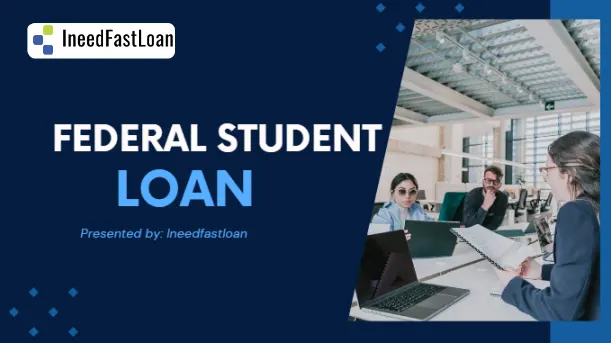Best 5 Education Loans in the Netherlands

Discover comprehensive insights into refinancing education loans in the Netherlands. Learn about the benefits, processes, challenges, and tips for managing your student debt effectively. Whether you’re a Dutch or international student, find out how refinancing can help you achieve financial stability and save on interest costs.
Refinancing education loans is a crucial financial strategy that can significantly impact the financial health and stability of individuals who have incurred student debt. The Netherlands, known for its robust education system and a significant number of international students, presents a unique landscape for refinancing education loans. This article delves into the intricacies of refinancing education loans in the Netherlands, providing comprehensive insights into the benefits, processes, considerations, and potential pitfalls of refinancing student loans in this European nation.
The Dutch Education System and Student Loans
The Dutch education system is renowned for its high standards and diverse offerings, attracting students from around the world. Universities in the Netherlands provide a range of programs in English, catering to international students who seek quality education. However, the cost of education, especially for non-EU students, can be substantial. To manage these costs, many students rely on education loans.
Types of Education Loans in the Netherlands
- DUO Loans: The Dienst Uitvoering Onderwijs (DUO) offers loans to Dutch students and EU/EEA students who meet certain criteria. These loans are provided at low-interest rates and come with favorable repayment terms.
- Private Loans: For students who do not qualify for DUO loans or need additional funding, private loans from banks and financial institutions are an option. These loans typically come with higher interest rates and stricter repayment terms.
Why Refinance Education Loans in the Netherlands?
Refinancing education loans involves taking out a new loan to pay off one or more existing student loans. This new loan usually comes with better terms, such as lower interest rates or extended repayment periods, making it easier for borrowers to manage their debt. Here are some key reasons why individuals consider refinancing their education loans:
- Lower Interest Rates: By refinancing, borrowers can secure lower interest rates, reducing the overall cost of the loan.
- Reduced Monthly Payments: Refinancing can extend the repayment period, resulting in lower monthly payments, which can be more manageable for borrowers.
- Simplified Repayment: Combining multiple loans into a single loan can simplify the repayment process, making it easier to keep track of payments.
- Improved Financial Terms: Borrowers may benefit from more favorable loan terms, such as fixed interest rates, which provide more predictability in financial planning.
- Better Financial Management: Refinancing can free up cash flow, allowing borrowers to allocate funds towards other financial goals or investments.
The Refinancing Process in the Netherlands
Refinancing education loans in the Netherlands involves several steps and considerations. Understanding this process can help borrowers make informed decisions and optimize their financial outcomes.
-
Assess Your Current Loan Situation
The first step in refinancing is to thoroughly understand your current loan situation. This includes:
- Reviewing the terms and conditions of your existing loans.
- Identifying the interest rates, repayment schedules, and any penalties for early repayment.
- Calculating the total outstanding balance and monthly payment obligations.
-
Research Potential Lenders
Next, research potential lenders who offer refinancing options. This can include:
- Dutch banks and financial institutions.
- International lenders who cater to expatriates or students with international loans.
- Online platforms that specialize in student loan refinancing.
-
Compare Loan Offers
Once you have identified potential lenders, compare their loan offers. Key factors to consider include:
- Interest rates: Compare both fixed and variable rates.
- Repayment terms: Look at the length of the repayment period and the flexibility of terms.
- Fees and charges: Be aware of any origination fees, prepayment penalties, or other charges.
- Customer service and support: Evaluate the quality of customer service and support provided by the lender.
-
Application Process
After selecting a lender, begin the application process. This typically involves:
- Completing an online or paper application form.
- Providing necessary documentation, such as proof of income, identification, and details of existing loans.
- Undergoing a credit check and financial assessment by the lender.
-
Loan Approval and Disbursement
If your application is approved, the lender will disburse the new loan, which will be used to pay off your existing loans. Ensure that the disbursement process is smooth and that all previous loans are fully settled.
-
Repayment of the New Loan
Once the new loan is in place, adhere to the repayment schedule. Set up automatic payments if possible to avoid missing any payments and incurring penalties.
Considerations and Challenges in Refinancing Education Loans
While refinancing can offer significant benefits, it is essential to consider the potential challenges and pitfalls. Here are some critical considerations:
Eligibility Criteria for Education Loans in the Netherlands
Different lenders have varying eligibility criteria for refinancing education loans. These criteria may include:
- Minimum income requirements.
- Employment status and job stability.
- Credit score and credit history.
- Residency status and citizenship.
- Interest Rate Trends
Interest rates can fluctuate based on economic conditions. While refinancing can secure lower rates, it is crucial to consider future interest rate trends. Opting for a fixed-rate loan can provide stability, while a variable-rate loan may offer lower initial rates but come with the risk of rate increases over time.
Fees and Costs
Refinancing may involve fees such as origination fees, application fees, and prepayment penalties. It is essential to factor in these costs when evaluating the overall benefit of refinancing.
Impact on Credit Score
The process of applying for a new loan and closing old loans can impact your credit score. Multiple credit inquiries in a short period can lower your score temporarily. Additionally, the average age of your credit accounts may decrease, affecting your credit history.
Loss of Loan Benefits
Refinancing federal or government-backed loans into private loans can result in the loss of certain benefits, such as income-driven repayment plans, deferment, and forbearance options, and loan forgiveness programs. Carefully consider the trade-offs before refinancing.
Currency Exchange Risks
For international students or expatriates, currency exchange rates can impact the cost of repaying loans in a different currency. It is essential to consider exchange rate fluctuations and their potential impact on your financial obligations.
Case Studies: Refinancing Education Loans in the Netherlands
To provide a practical perspective, let’s explore some hypothetical case studies of individuals refinancing their education loans in the Netherlands.
-
Maria, an EU Student
Maria, an EU student studying in the Netherlands, took out a DUO loan to finance her education. After graduating and securing a stable job, Maria decided to refinance her loan to take advantage of lower interest rates. She researched various Dutch banks and found one that offered a fixed interest rate lower than her existing DUO loan. By refinancing, Maria reduced her monthly payments and saved on interest costs over the life of the loan.
-
John, an International Student
John, an international student from India, financed his education through a combination of private loans from his home country and a Dutch bank. After graduation, John found it challenging to manage multiple loan payments with varying interest rates. He decided to refinance by consolidating his loans into a single loan from an international lender. This not only simplified his repayment process but also secured a lower interest rate, making his debt more manageable.
-
Lisa, a Dutch Professional
Lisa, a Dutch professional, had accumulated significant student debt through DUO loans and private loans to finance her postgraduate studies. After working for several years and improving her credit score, Lisa decided to refinance her loans to take advantage of better financial terms. She opted for a Dutch bank that offered flexible repayment options and no prepayment penalties, allowing her to pay off her debt faster while saving on interest costs.
Tips for Successfully Refinancing Education Loans
Successfully refinancing education loans requires careful planning and consideration. Here are some tips to help you navigate the process:
Understand Your Financial Goals
Before refinancing, clearly define your financial goals. Are you looking to lower your monthly payments, reduce the total interest paid, or simplify your repayment process? Understanding your objectives will help you choose the best refinancing option.
Maintain a Good Credit Score
A good credit score is crucial for securing favorable refinancing terms. Pay your bills on time, reduce your credit card balances, and avoid taking on new debt to improve your credit score.
Shop Around for the Best Rates
Don’t settle for the first refinancing offer you receive. Shop around and compare rates from multiple lenders to ensure you get the best deal. Use online comparison tools to streamline this process.
Read the Fine Print
Carefully review the terms and conditions of any refinancing offer. Pay attention to interest rates, fees, repayment terms, and any penalties for early repayment. Make sure you understand the full cost of the new loan.
Seek Professional Advice
If you’re unsure about the refinancing process or need help evaluating your options, consider seeking advice from a financial advisor or loan specialist. They can provide personalized guidance based on your financial situation.
Plan for the Long Term
Consider the long-term implications of refinancing. While lower monthly payments may provide immediate relief, extending the repayment period can result in higher overall interest costs. Evaluate the trade-offs and choose a plan that aligns with your long-term financial goals.
The Future of Education Loan Refinancing in the Netherlands
The landscape of education loan refinancing is continually evolving, influenced by changes in economic conditions, government policies, and the financial industry. Here are some trends and developments that may shape the future of education loan refinancing in the Netherlands:
Increasing Competition Among Lenders
As the demand for education loan refinancing grows, competition among lenders is likely to increase. This can lead to more attractive loan offers, lower interest rates, and better customer service, benefiting borrowers.
Technological Advancements
Advancements in financial technology (fintech) are transforming the lending industry. Online platforms and digital tools make it easier for borrowers to compare loan offers, complete applications, and manage their loans. Fintech innovations may also lead to more personalized loan products and faster approval processes.
Government Policies and Regulations
Government policies and regulations play a crucial role in shaping the education loan market. Changes in policies related to interest rates, loan forgiveness programs, and borrower protections can impact the availability and terms of refinancing options. Staying informed about policy changes is essential for borrowers.
Focus on Financial Literacy
There is a growing emphasis on financial literacy and education. As borrowers become more informed about their financial options, they are better equipped to make smart decisions about refinancing. Financial literacy programs and resources can help individuals understand the benefits and risks of refinancing education loans.
Globalization and International Borrowers
The increasing globalization of education means that more international students are seeking loans to finance their studies. This trend may lead to the development of new loan products and refinancing options tailored to the needs of international borrowers. Lenders may also expand their services to cater to expatriates and non-resident borrowers.
Conclusion
Refinancing education loans in the Netherlands offers a valuable opportunity for borrowers to improve their financial situation and achieve their long-term goals. By understanding the refinancing process, carefully evaluating loan offers, and considering the potential benefits and challenges, borrowers can make informed decisions that lead to significant financial savings and stability.
Whether you are a Dutch student, an international student, or a professional seeking to manage your student debt, refinancing can be a powerful tool in your financial strategy. As the education loan market continues to evolve, staying informed and proactive will help you navigate the complexities of refinancing and make the most of the opportunities available.
In summary, refinancing education loans in the Netherlands requires a thorough understanding of your current loan situation, diligent research of potential lenders, careful comparison of loan offers, and a clear plan for managing your new loan. By following these steps and staying informed about market trends and policy changes, you can optimize your financial outcomes and achieve greater financial stability.
Frequently Asked Questions (FAQS) about Refinance Education Loan in Netherlands
1. What is education loan refinancing?
Refinancing an education loan involves taking out a new loan to pay off one or more existing student loans. The new loan typically has different terms, such as a lower interest rate or a different repayment schedule, which can help borrowers save money or manage their debt more effectively.
2. Why should I consider refinancing my education loans in the Netherlands?
Refinancing can offer several benefits, including:
- Lower Interest Rates: Potentially reducing the overall cost of the loan.
- Reduced Monthly Payments: Extending the repayment period to lower monthly payments.
- Simplified Finances: Combining multiple loans into a single payment.
- Better Loan Terms: Switching from variable to fixed interest rates or vice versa.
3. Who is eligible to refinance education loans in the Netherlands?
Eligibility criteria can vary by lender, but generally include:
- Residency: Must be a resident of the Netherlands.
- Credit Score: A good credit history.
- Income: Sufficient income to meet repayment obligations.
- Degree Completion: Some lenders require proof of graduation.
4. What types of education loans can be refinanced?
In the Netherlands, you can typically refinance both federal and private student loans. This includes loans provided by the Dutch government (DUO loans) and loans from private financial institutions. However, the specific terms and availability can vary by lender.
5. How does the refinancing process work?
The refinancing process generally involves the following steps:
- Research and Compare Lenders: Look for lenders offering favorable terms.
- Apply for Refinancing: Submit an application with necessary documentation, such as proof of income and existing loan details.
- Review Offers: Compare the terms of different refinancing offers.
- Accept an Offer: Choose the best offer and complete the acceptance process.
- Repay Old Loans: The new lender pays off the old loans, and you start making payments on the new loan.
6. Are there any risks or downsides to refinancing education loans?
While refinancing can offer benefits, there are also potential risks, such as:
- Loss of Benefits: Federal loans may come with benefits like income-driven repayment plans or loan forgiveness, which can be lost upon refinancing with a private lender.
- Fees: Some lenders may charge origination or application fees.
- Credit Impact: Applying for refinancing may result in a hard inquiry on your credit report, temporarily affecting your credit score.
By understanding these key aspects, you can make a more informed decision about whether refinancing your education loans in the Netherlands is the right choice for you.






